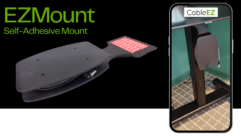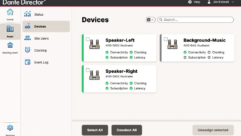
Management Perspectives:
How to Avoid Being Burned
Nov 1, 2004 12:00 PM,
By Gary Zandstra
Having a client use or abuse you is one of the most painful experiences in sales. Author Zandstra gives ideas to help from being burned or to help learn from the experience.
Click here to read more Management Perspectives columns

Have you ever been burned by someone? Really burned? The kind of burn that leaves a mark? Have you envied the salesperson who continually lands the big projects and sets sales records? Have you ever wished you were the No. 1 salesperson?
Are you wondering what being burned and being a top salesperson have in common? Usually they go hand in hand. In fact, being burned and being in sales are usually mutually co-existing concepts.
Most everyone who has been in sales for any period of time has been burned by either a dishonest competitor or by a client. When a client does it, it’s often the hardest to take. A prime example of this is the client who uses and abuses the information you provided by sending a copy (prices and all) to a competitor for a “comparison quote.” It is what you do when this happens and how you learn from it that separate the king of the sales hill from the battle-torn soldiers.
KNOW THY CUSTOMER
Most of the time, salespeople get burned because they do not know their customer. Sometimes it is because the relationship is new, other times it happens because the salesperson has not nurtured the relationship or has lost touch with the customer.
BUILDING NEW RELATIONSHIPS
When a client or prospect is new to you it can be difficult to determine whether you are being used or if the customer is seriously interested in your offerings.

Personally, I am a Pollyanna kind of guy. I tend to trust everyone until I have a reason not to (ask me about the used BMW I bought from a client a number of years ago). There are good things about trusting everyone. You can go into sales opportunities in full gear, ready to land them, make them into trophies, and then parade them around. This attitude can be helpful, otherwise you may want to ask yourself why you are even making calls. If you don’t believe that your company offers the best solution, what do you have to sell?
Also, it is always good to have engineers around. Engineers have the God-given ability (or curse, depending on how you look at it) to explain to sales professionals every reason why a customer will not buy. However, an engineer’s perspective can also help a sales professional better present and sell a solution because he is prepared for the customer’s objections.
An engineer can give great insight into a customer’s thoughts and habits. Just think of walking out of a customer meeting with an engineer and having him say something like, “That customer is in love with our competitor and XYZ speakers. Did you see the service sticker on the equipment? Our competitor is all over this.” Information like this should alert you to the potential of being used or abused.
There is no shortcut for doing your homework. First, when there is a new prospect, you should make it a matter of habit to ask around before calling. Most people hate getting cold calls. When you target a prospect you should do everything you can to make that first call a warm call. Try to find a connection to the prospect. Talk to suppliers, customers, employees, and people in your social network.
Second, listen for clues that might steer you away from a situation where you may be used or abused. A word of caution here: Make sure that you look at the facts — not just people’s opinions — about a potential client. Your job is to pre-qualify, not pre-judge the prospect. Find out why someone doesn’t like the prospect — was it personal or was it a character issue? If everyone advises you to steer clear, do so. This little bit of homework can protect you from a few scars and burn marks.
EXISTING RELATIONSHIPS
Getting burned by an existing customer is one of the most painful experiences in sales. When you have a relationship with a customer and find out they are looking at your competitor, that is painful. When this occurs, you need to examine how you have treated that customer in the past. Has the relationship gone sour? Drifted? Or have you not delivered for the customer?

It is very tough to honestly assess and then turn around a sales situation like that. However, it can be done. The process can even strengthen your relationship with the customer.
What’s tougher is when you find out that your customer is not only talking to your competitor, but has shared your most recent proposal and dollar amount with them. At this point I believe you only have two choices: engage or escape.
Escape is the easiest (and most cowardly) way to go. You simply do not call on the client or return phone calls. You just fade into the landscape of all the other unsuccessful salespeople. This can also confirm to the client that it was a good thing to call your competitor.
Engaging the customer in a situation like this takes thought, work, tenacity, and great fortitude. It is always best to do this in person. Phone calls and email (e-voidance mail) allow people to hide behind a mask of technology. This way they can avoid expressing their real feelings about a situation.

When you visit the client, do not jump in and attack him for talking to your competitor. The better approach is to ask the client about his satisfaction with your company, your product, and your service. Ask probing questions about recent transactions. Did we finish the project on time? Was this a successful project for you? Are people in your company able to use the system we installed without difficulty? What went well on the project? What could we have done better? The key here is to get the client talking.
Once you have the client talking and engaged, the moment of truth comes. You might approach it by stating, “I have heard from one of the manufacturers we represent that you are talking to my competitor. I know that the choice of who you do business with is yours. If my competitor has a better solution at a better price with better service, he deserves your business. All I ask is that while you are evaluating my competitor that you also look at the strengths of our company. I enjoy the open, honest, trustworthy relationship that we have and look forward to continuing it in the same fashion.”
Never address the issue of sharing a proposal amount with a competitor, rather, plead to the customer’s sense of honor and trust. If this is a client you want to continue to do business with, he will take the road of integrity and fairly evaluate both companies and proposals.
Getting burned is never fun, but it can eventually lead to a stronger relationship with a client. The key is to avoid being burned when you can. When you can’t, don’t let the fire consume you.










